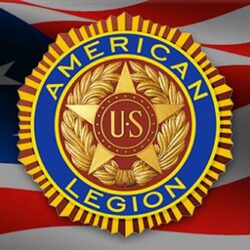Air Force Veteran Ares Paige has been doing a lot of interviews about his work with the homeless and LGBTQ+ communities. As a black, transgender man, Paige knows the power of seeing someone who looks like you when you often feel invisible. He knows those facing homelessness may be more likely to ask for help if they think there’s someone on the other end who understands.
And Paige does understand, as he’s been down that road.
“I’ve been that person who was starving. I’ve been that guy who didn’t know if he was going to have a roof over his head the next day. I don’t like to see it any more than I like to be it,” he said.
Rebounding from homelessness
Paige’s first bout of homelessness came when he was 15, after a conflict with his parents. Though he eventually found somewhere to stay and later enlisted in the Air Force, he became homeless again in late 2021 after his mother died. Her house, where he had been living since separating from his wife, went into probate.
He couch-surfed and slept on the street for some time, eventually taking matters into his own hands. He combed VA’s website to learn about the benefits and housing support that he might be eligible to receive.
Despite it being the height of the COVID-19 pandemic, Paige was quickly connected with services at VA Northeast Ohio Healthcare System in Cleveland. He spent two weeks at a hotel in quarantine before being moved to a shelter, then into his own apartment through the Housing and Urban Development-VA Supportive Housing (HUD-VASH) program. “I can’t believe how quickly everything happened,” he recalled.
In addition to housing, Paige also uses VA for his health care, including regular visits to the VA Pride Clinic to have his testosterone levels checked.
While acknowledging his recent experience with homelessness may have been easier because he appears to the world as a cisgender male, Paige wants other LGBTQ+ Veterans to know his experiences with VA have been overwhelmingly positive.
“A lot of times, they get scared going into shelters because of their status. Give VA a chance. VA people have shown me that they will protect you,” he said.
Pursuing his passion
Paige is committed to creating a safe space for other members of the LGBTQ+ community and those facing homelessness.
After working in private security and as a software engineer, he’s now the outreach recruiter and administrator and staff liaison at the Bayard Rustin LGBTQ+ Resource Center in Akron, Ohio.
It’s a unique community resource, providing drop-in services for food and supplies, a clothing bank, and shower and laundry facilities. The center is available to everyone, giving community members a chance to interact with those who are LGBTQ+ and see that they are more alike than different.
In the future, he would love to open similar resource centers in other states and possibly become a social worker like those who assisted him on his way back from homelessness.
“I have a passion for this kind of work. I just want to help, man. That’s the honest truth,” he added.
VA programs
VA takes pride in serving all who served. Visit the VHA LGBTQ+ Patient Care Services website to learn more about the health care services available. For more resources:
If you are a Veteran who is homeless or at risk for homelessness, call the National Call Center for Homeless Veterans at 877-4AID-VET (877-424-3838).
Visit the VA Homeless Programs website to learn about housing initiatives and other programs for Veterans exiting homelessness.
Check out the Ending Veteran Homelessness podcast to learn more about what VA is doing about Veteran homelessness.
Learn how to get involved with housing homeless Veterans.
Subscribe to the Homeless Programs Office newsletter to receive monthly updates about programs and supportive services for Veterans experiencing or at risk of homelessness.
